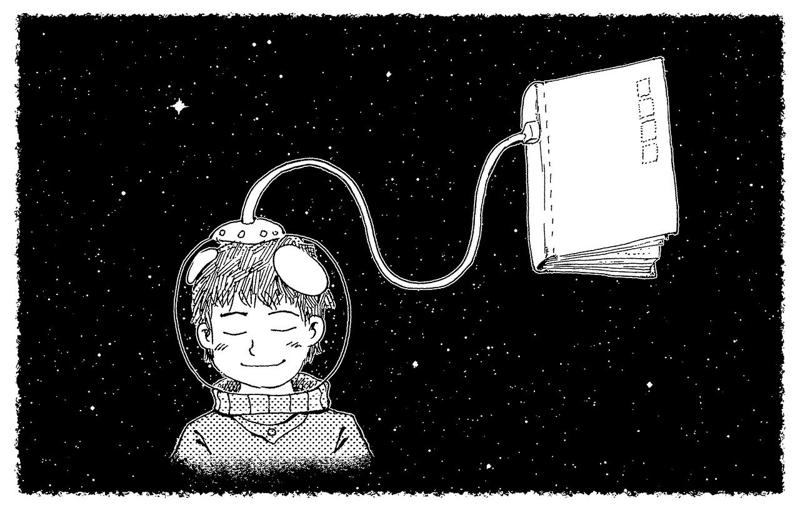Analytical Person Meaning
It is someone who relies on rational thought, not emotions. Analytical people use logic to solve problems and explore the world around them. They are constantly gathering information and analyzing everything that happens in their life and beyond. Also, they are thirsty for knowledge, and they never stop learning, thinking, and questioning.
If you believe that you fit the definition of an analytical person, read through the signs below.
11 Signs You Are a Highly Analytical Person
1. You think deeply
As an analytical thinker, you are not satisfied with seeing things on the surface. You dig deeper, wanting to get to the root of all happenings. You are also pretty good at making your own theories and finding patterns between seemingly unrelated phenomena.
You never jump to conclusions or assume something just because other people do. Instead, you seek to figure out why things happen the way they do, and you never stop pursuing answers.
Therefore, you do a lot of thinking before you can draw a conclusion or form an opinion.
2. ‘Why’ is your favorite question
As an analytical person, you often ask yourself the question ‘why’. You know this is the key to understanding the nature of everything, from your co-worker’s behavior to a change in the world’s economy.
This means that you see beyond people’s words and actions. You are interested in their motives in the first place, wanting to know why they said or did this. This allows you to figure out what kind of person is in front of you, or what is happening in reality.
Whether it’s your work, world politics, or interpersonal relationships, you are curious to learn how things function. That’s a key trait of a highly analytical person.

3. You are rational
Among the most telling signs of highly analytical people is that they go with logic, not emotions. They can get a clear picture about any given situation—they examine it from the logical standpoint and don’t allow emotions mess with their analysis.
Sometimes an analytical person perceives the world too rationally, though. For this reason, they may struggle to deal with situations that involve emotions. They also find it difficult to understand people who make irrational decisions and act on emotions.
For example, you have a friend who is a very emotional person, and she’s stuck in a dysfunctional relationship. She is complaining about her boyfriend yet again, and she is really upset.
What would you typically do as an analytical thinker? Instead of providing your friend the emotional support she needs, you will most likely give her an extended analysis of the situation from the rational point of view.
As a result, you can sometimes come across as insensitive. In reality, you are just rational. This is how your analytical brain is wired.
4. You can be indecisive
Your highly analytical mind can stop you from acting. When you have a decision to make, you want to examine all the potential risks. As a result, you hesitate a lot and get trapped in a never-ending analysis instead of making that decision.
It’s called ‘analysis paralysis’, and the term is self-explanatory. A certain drawback of being a highly analytical person is that you can sometimes overthink the most trivial decisions, such as what route to take to work or who to invite to your birthday party.
The longer you hesitate and weigh up the available options, the harder it is to take action. That’s why people with an analytical personality can sometimes seem indecisive and even insecure.
5. You question everything
Highly analytical people take nothing at face value. If you are one, then you realize that life is much more complex than it seems. You question everything you hear, learn, and read — this is a key sign of an analytical person.
You know that events, phenomena, and people’s behaviors are not always what they look like. And, as an analytical thinker, you seek to delve into the causes of all happenings.
You want to understand why there is so much buzz about an issue on social media or what motives a person has when s/he acts in a certain way. Someone’s words or opinions are not enough for you—you need evidence before you can be sure that their claims reflect the truth.
One thing is certain: people with an analytical personality think for themselves.
6. You are skeptical
The tendency to question and analyze everything often makes you skeptical. You are not quick to believe others, adopt someone else’s opinions, or go with the agenda supported by the majority.
Just the fact that most people believe something or that it’s broadcasted everywhere on the news is not convincing enough. You want to think it over and study the evidence first.
There comes one of the greatest drawbacks of being an analytical thinker—you tend to assume the worst about other people’s motives. For example, when someone is being too nice to you, your first thought is that they seek to take advantage of you.
Even though your analytical mind can make you overly cautious and skeptical, most of the time, you turn out to be right.
7. You love learning

You can’t do a proper analysis if you don’t have sufficient information, right? Therefore, a typical trait of highly analytical people is that they love expanding their knowledge.
Learning is one of your passions. No matter what the subject of your interest is, you seek to get updated on it all the time. It can be world history, astrophysics, or gardening—it doesn’t matter what it is.
You are constantly looking for new information, watching documentaries, and reading articles. You never stop learning. Broadening your horizons allows you to get a clearer picture of the topics that interest you.
You also appreciate intellectual challenge and don’t shy away from a debate. Talking to people who have different opinions gives you fresh food for thought and widens your perspective.
8. Social skills are not your forte
Some people with analytical personalities find it hard to connect with others. It happens because they are driven by logic, and interpersonal relationships inevitably involve emotions.
Therefore, it can be hard for a methodical and highly analytical person to understand others and conduct themselves properly in social settings.
Some situations require you to show some tact and empathy, and this is not something you are good at as an analytical thinker. You rely on logic and go with the truth, even if it sounds uncomfortable to some people.
Don’t expect a highly analytical person to say meaningless pleasantries or give you a polite compliment. They see it as a waste of time. That’s why some people may misunderstand their personality, considering them to be too blunt, emotionless, and even rude.
9. You stick to a routine
Whether you like spontaneity or not depends on other aspects of your personality. But as a highly analytical person, you appreciate routines, at least when it comes to your daily life.
You have a list of habits you never compromise. Sticking to a routine helps you function properly and be more productive. It also gives you the feeling of being in control. One thing a highly analytical person can’t stand is uncertainty — hence their love for routines.
However, sometimes this trait stops people with analytical personalities from going with the flow and enjoying the moment.
10. Your friends turn to you for advice
If you are an analytical person, your friends often seek your advice. That’s because you are good at analyzing life situations and relationship patterns. You excel at problem solving, too. As we said above, you can sometimes sound too blunt and insensitive, but, at the same time, your advice is always helpful and on point.
You look at your friend’s situation from an outsider’s perspective, using your analytical ability and rational thought. As a result, you often see what’s going on and where things are heading before your friends do.
You tell them what the outcome will be, and most of the time, you hit the nail on the head. It’s like you see right through people. Some of your friends may even believe that you are able to predict the future!
So, it’s no surprise they often ask for your opinion when they have personal problems or face confusing situations at work.
11. Sometimes you overanalyze

Highly analytical people often grow to be overthinkers, and the reason is obvious. When you constantly analyze everything that happens to, around, and within you, it’s easy to fall into the trap of overthinking.
This is when you overanalyze the most trivial situations and try to find hidden motives behind other people’s behaviors. You brood over your own actions in a similar manner, too. Questions and thoughts such as these often pop up in your mind:
Why would I say that? Was it a good thing to do? Maybe I shouldn’t have done that.
This can cause regrets and unnecessary worries. After all, there is always a flip-side to everything, including being a highly analytical person.
But you know what? Despite those few drawbacks we talked about, an analytical personality is a powerful asset. If you fit the descriptions above, cherish that beautiful mind of yours!


